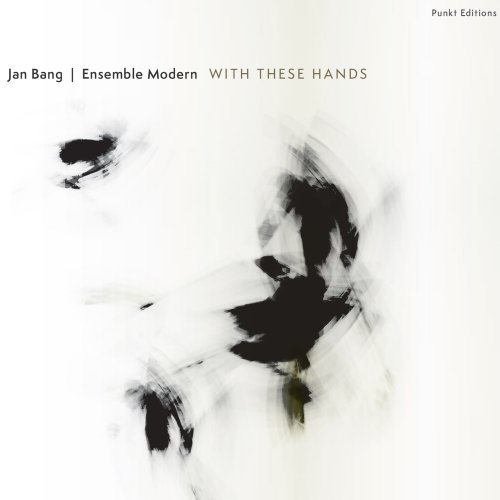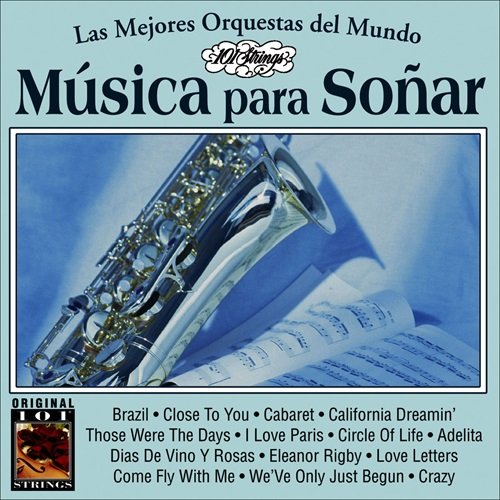Stephanie Blythe, John Nelson - Handel & J.S.Bach: Arias (2001)
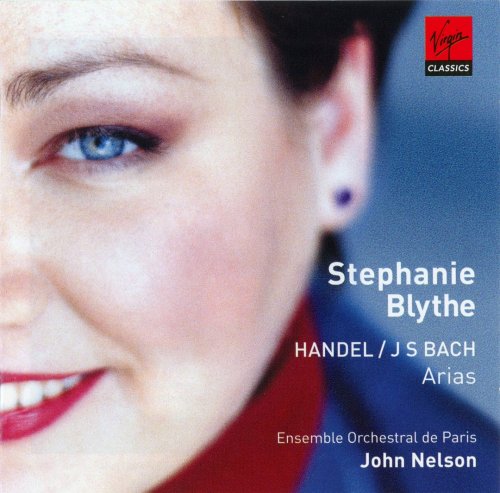
Artist: Stephanie Blythe, John Nelson
Title: Handel & J.S.Bach: Arias
Year Of Release: 2001
Label: Virgin Classics
Genre: Classical
Quality: FLAC (image+.cue,log,scans)
Total Time: 01:11:36
Total Size: 320 MB
WebSite: Album Preview
Tracklist:Title: Handel & J.S.Bach: Arias
Year Of Release: 2001
Label: Virgin Classics
Genre: Classical
Quality: FLAC (image+.cue,log,scans)
Total Time: 01:11:36
Total Size: 320 MB
WebSite: Album Preview
George Frideric Handel
Serse - Serse (3:43)
1 Frondi Tenere...
2 Ombra Mai Fu
Hercules - Dejanira (6:49)
3 Where Shall I Fly
Semele - Juno (4:56)
4 Awake, Saturnia...
5 Iris, Hence Away"
Giulio Cesare
6 Al Lampo Dell'armi 3:29
7 Dall' Ondoso Periglio... Aure, Deh, Per Pietà 8:33
8 Priva Son D'ogni Conforto 5:56
9 Madre... Son Nata A Lagrimar" 8:21
Johann Sebastian Bach
Matthäus-Passion BWV 244
10 Erbarme Dich, Mein Gott 6:20
11 Können Tränen Meiner Wangen 7:04
Johannes-Passion BWV 245
12 Von Den Stricken Meiner Sünden 5:09
13 Es Ist Vollbracht! 5:49
Messe H-Moll BWV 232
14 Agnus Dei 5:19
This is a lovely recording. Stephanie Blythe's voice must be one of the most beautiful to be heard today: smooth as silk, warm as velvet, pure, dark, almost masculine at times, even in quality across a big range down to F-sharp. She can spin out endless phrases without strain. Her intonation is impeccable, her expressiveness heartfelt, simple, and direct. The program is a string of priceless jewels, opening with the famous "Ombra mai fu" from "Serse" (better known as Handel's Largo) and closing with the Agnus Dei from Bach's B minor Mass. However, with the exception of Juno's furious outburst of jealousy from Handel's Semele, the dramatic "Where shall I fly?" from his Hercules, and one fast, light aria from Giulio Cesare, everything is slow and primarily mournful. This seems to be in the nature of the contralto repertoire, but it does generate a certain sameness despite all attempts to create variety.
One of the highlights is the heartrending mother-son duet between Cornelia and Sesto from Giulio Cesare with the splendid countertenor David Daniels, but Blythe includes both Cornelia's and Cesare's arias, fulfilling a wish no doubt cherished by many great contraltos, but impossible to realize on stage. She seems more at home in Handel's worldly arias than in Bach's sacred ones, some of which--notably the "Erbarme dich" from the St. Matthew Passion--sound a little too operatic. The violinist who plays the wonderful obbligato here is not named (and often inaudible); the fine wind soloists in the St. John Passion are also unidentified. The orchestra is good but rather stiff, the rhythm pedantic, the style, with normal tuning, semi-baroque. This is underscored by the truly baroque gamba solo in St. John. However, the beauty of the singing triumphs over all misgivings. --Edith Eisler
One of the highlights is the heartrending mother-son duet between Cornelia and Sesto from Giulio Cesare with the splendid countertenor David Daniels, but Blythe includes both Cornelia's and Cesare's arias, fulfilling a wish no doubt cherished by many great contraltos, but impossible to realize on stage. She seems more at home in Handel's worldly arias than in Bach's sacred ones, some of which--notably the "Erbarme dich" from the St. Matthew Passion--sound a little too operatic. The violinist who plays the wonderful obbligato here is not named (and often inaudible); the fine wind soloists in the St. John Passion are also unidentified. The orchestra is good but rather stiff, the rhythm pedantic, the style, with normal tuning, semi-baroque. This is underscored by the truly baroque gamba solo in St. John. However, the beauty of the singing triumphs over all misgivings. --Edith Eisler
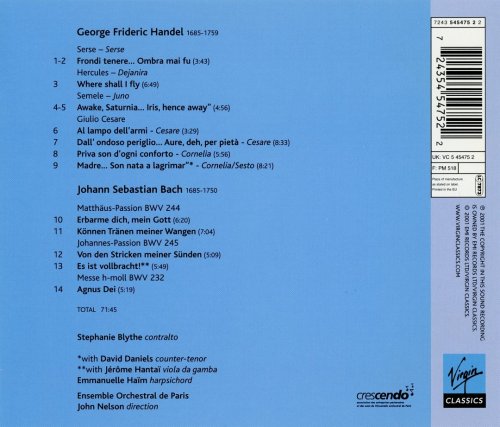
![Oulu All Star Big Band, Ingá-Máret Gaup-Juuso and Jukka Eskola - Davvi Oktavuohta - Pohjoinen yhteys (2026) [Hi-Res] Oulu All Star Big Band, Ingá-Máret Gaup-Juuso and Jukka Eskola - Davvi Oktavuohta - Pohjoinen yhteys (2026) [Hi-Res]](https://www.dibpic.com/uploads/posts/2026-02/1770364798_k6yo0dxz10jkv_600.jpg)
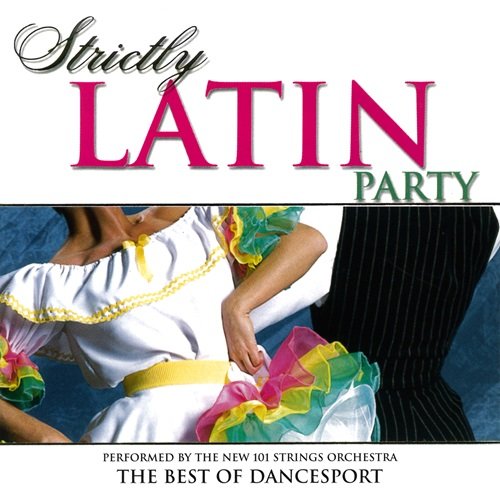
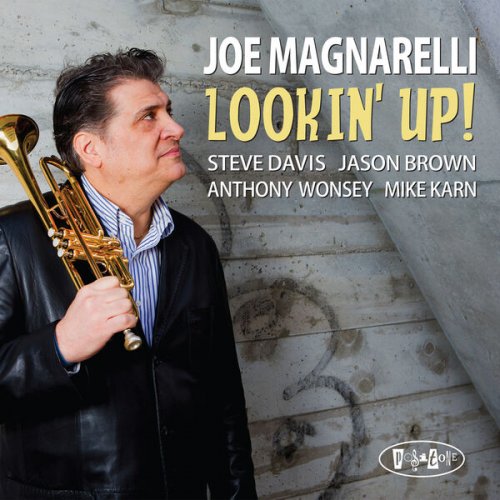
![Rok Zalokar - Pieces for Collective Change (2025) [Hi-Res] Rok Zalokar - Pieces for Collective Change (2025) [Hi-Res]](https://img.israbox.com/img/2026-02/09/bdwqrbl1honjxisedtld75o3t.jpg)
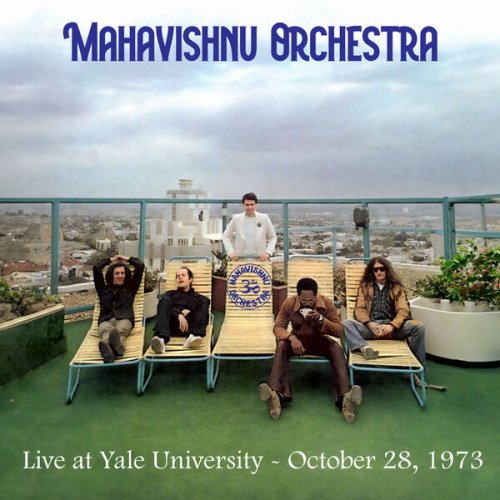
![Maj Kavšek - MINOR FLAW (2026) [Hi-Res] Maj Kavšek - MINOR FLAW (2026) [Hi-Res]](https://img.israbox.com/img/2026-02/09/8u50qjzftilnmaq7cws2iy3sg.jpg)
